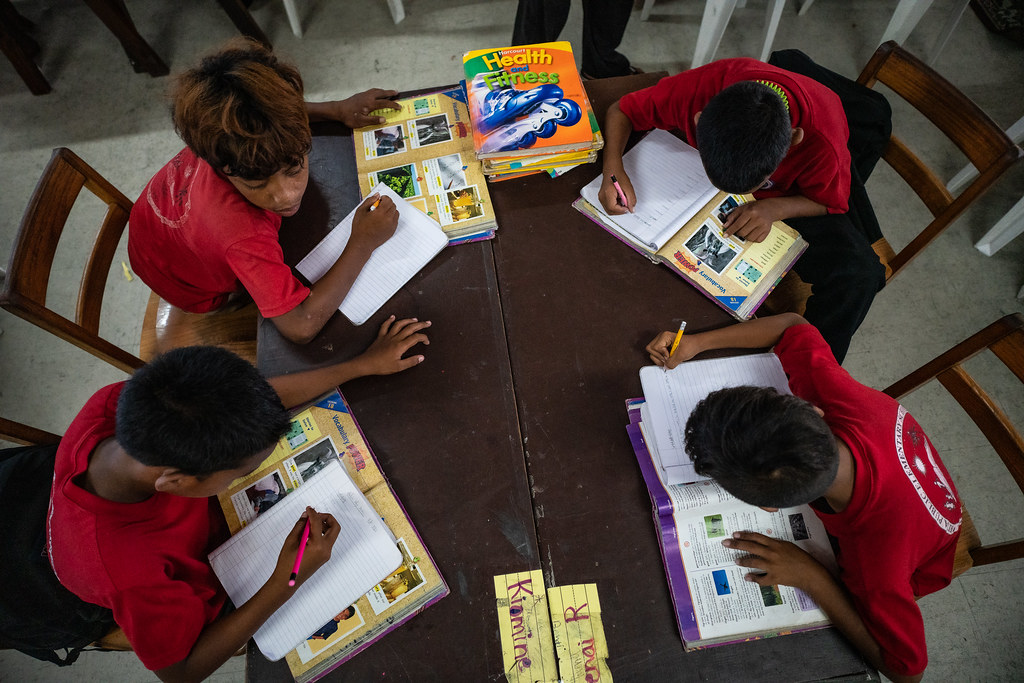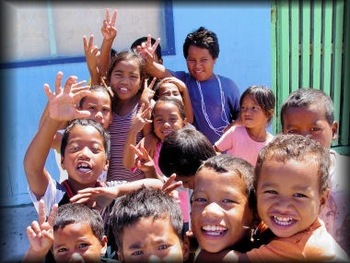RMI Education and Skills Strengthening Project
The Government of the Republic of Marshall Islands has received financing from the World Bank for the Education and Skills Strengthening Project (ESSP) cost. It means to use part of the proceeds for seeking advice from services.
The consulting services (“the Services”) will assist the Project Manager and the RMI National Training Council in implementing the World Bank-funded job successfully.
The project will focus on supporting the Project Implementation Unit (PIU) in developing a framework for Recognition of Prior Learning (RPL) for TVET, focused on helping the College of the Marshall Islands and the RMI National Training Council assess and enhance the skills of employees through certified college certification.
The detailed Terms of Reference (TOR) for the task are indicated in the attached Terms of Reference (ToR).
The National Training Council now welcomes eligible individuals (“Consultants”) to suggest their interest in providing the Services. Intrigued Consultants should provide information demonstrating that they have the required credentials and pertinent experience to perform the Services (connect a Cover Letter of no more than four (4) pages attending to the necessary experience and certification requirements curriculum vitae with a description of experience in comparable tasks, comparable conditions, and so on). Firms’ personnel might reveal interest through the using company for the task. In such a scenario, just the experience and credentials of individuals will be considered in the selection procedure. The criteria for choosing the Consultant are: A.
Mandatory Qualifications and Experience Master’s degree in education, training
, management, or a related field. Minimum of 5-10 years of experience working in TVET System. Curriculum Design and Systems.
Possess 2-5 years’ experience designing and
executing RPL. frameworks, policies, and procedures. A sample of previous work will be needed as proof of previous experience. Exceptional interaction, training, and facilitation
abilities. Experience with dealing with varied stakeholders, consisting of federal government. firms, TVET organizations, employers, and learners in the Pacific. B. Desired Qualifications and Experience Ability to deal sensitively in a multicultural
environment and build reliable group relationships with clients and pertinent stakeholders. The attention of interested Consultants (including firms )is drawn to paragraphs 3.14, 3.16 and 3.17 of the World Bank’s”
Procurement Regulations for IPF Borrowers “July 2016 modified November 2020” Procurement Regulations “, stating the World Bank’s policy on dispute of interest. Further info can be gotten at the address listed below during workplace hours, 0900 to 1700 local time. Expressions of interest must be
provided in a written type to the address below (in person or by e-mail )by 5:00 pm, 23rd December 2024.
The subject line needs to state:”National Training Council Strategic Plan Consultant -full name of the candidate”. Julius Lucky Director National Training Council!.?.!ntcdr@ntcinfo.org:Phone: 692 625-4521 Empowering Community Champions for Sustainable Development in RMI Gender Equality, Climate Resilience and Water Safety Training Majuro,
Republic of the Marshall Islands: The fourth
Women and Youth Training forGender Equality, Climate Change, Disaster Risk Reduction and Water Safety Management has actually just recently taken place at the University of the South Pacific’s school in Majuro, the Republic of the Marshall Islands(RMI ). This crucial training was organized by the United Nations Development Programme( UNDP )Pacific Office through the Addressing Climate Vulnerability in the Water Sector(ACWA) task. The week-long capacity-building training aimed to empower women and youth with the knowledge and practices required for climate-resilient water safety management in the
Republic of the Marshall Islands(RMI ). This training enhances a commitment to enhancing rmi national training council‘s water security and neighborhood durability versus environment modification impacts, especially women
and youth, ensuring that nobody is left behind. The training invited individuals from all 24 atolls and featured resource speakers from federal government agencies, non-governmental companies, and worldwide development partners from the RMI Environmental Protection Authority, Climate Change Directorate, Office of the Chief Secretary, Ministry of Culture and Internal Affairs, National Disaster Management Office, Women United Together Marshall Islands, rmi national training council Human Trafficking Task Force, Waan Aelõñ in Majel, Jo-Jikum, and the International Organization for Migration. In her opening remarks, Secretary for the Ministry of Culture and Internal Affairs, Brenda Alik, underscored the significance of cumulative action in constructing a climate-resilient country.”It is our obligation to come together and work together. As we deal with the difficulties posed by environment change, comprehending its impact on our water resources is essential for enhancing the wellness of communities throughout the Marshall Islands,”she stated.
rmi national training council Environmental Protection Authority General Manager Moriana Philip highlighted in her speech the vital role of women and youth in resolving climate-related obstacles.”This workshop unifies us from numerous neighborhoods to deal with the pressing problems we face today, consisting of climate-related difficulties, particularly on our water resources.”We want to stress the vital function of females and youth in this project as your involvement is instrumental to its success and beyond, “she said.
The first day of the workshop covered vital issues connected to gender equality, human rights, and public health within the Marshall Islands. It included conversations on gender equality and mainstreaming, focusing on the impacts of environment modification on water security and the out of proportion effects on vulnerable groups. The significance of integrating gender equality and social inclusion into all task aspects was also discussed. Human rights and human trafficking were tackled, worrying the requirement for detailed defense of susceptible populations
during emergency situations. Additionally, the workshop attended to gender-based violence, highlighting the various types that can occur in catastrophe situations, such as domestic violence and sexual browbeating. The agenda concluded with a focus on sanitation and health and their important function in health, incomes, school presence, self-respect, and building durable neighborhoods. ACWA Project Manager Koji Kumamaru expressed his gratitude to all participants

, emphasizing the significance of their contributions to their communities.”Women and youth are essential to the success of the ACWA project. More importantly, you are the champs and future leaders who will return to your neighborhoods to empower others,”he stated. During the workshop, individuals checked out Rongrong Island and took a look at the 15,000-gallon Flatpack Modular water tank set up at the Rongrong High School Boys Dormitory as part of the ACWA task. The setup is a key element of the task, matched by support from Australia
‘s Department of Foreign Affairs and Trade. The go to worked as an important direct experience of the favorable impact of the ACWA project on the community and its
water resources. Marie Naisher from Jabat Island expressed her thankfulness for the chance to join the workshop and explained her desire to be part of the job when it reaches Jabat.
“This was my very first time participating in such training, and I learned a lot from the guest speakers, group activities, and the site go to. I now understand the value of clean water and how to sanitize it. I’m fired up about the ACWA job concerning Jabat and prepared to assist when it shows up,”she stated. Don Kobney, an ACWA website organizer from Santo, Kwajalein, also shared his excitement.”The workshop and site check out enhanced my self-confidence and understanding of the water tank installation.
Seeing the 15,000-gallon flatpack modular water tank firsthand gave me a clear understanding of the system, and I’m eagerly anticipating sharing this understanding with my community, “he stated. By the workshop’s end, participants were better geared up to understand environment modification and its regional impacts, drive adaptation and mitigation efforts, particularly in water safety, and make use of brand-new resources to impact their communities positively. ACWA is enabled thanks to the assistance of the Green Climate
Fund, with the task co-financed by the Government of the Republic of the Marshall Islands

. The Marshall Islands: Skills Training and Vocational Education Project Assesses the efficiency of the task and highlights lessons. Offers inputs to two more comprehensive examinations- the regional examination of ADB support for the Pacific and the unique evaluation research study on Millennium Development Goals. The low instructional attainment and lack of Marshallese skilled workers were largely due to the low quality of basic education, absence of access to education in the external islands, and weaknesses in abilities training and the professional and technical education system.
These supported an economy marked by high unemployment because of constrained economic sector growth and federal government downsizing. Joblessness was particularly high amongst the youth and ladies in the external islands. Appropriate local knowledgeable workers for existing job vacancies
were not available, hence the importation of properly knowledgeable foreign employees. Thus, there was an inequality in between readily available tasks and skills of the Marshallese labour force. These conditions provided the initiative for the Government
of the Marshall Islands to prioritize technical and occupation education training reforms. In 2000, ADB approved a loan for $9.1 million to improve skills training to offer well-trained employees needed for continual financial and social advancement. This was to be accomplished through an integrated nationwide skills training system. The project consisted of four parts: advancement of a career awareness program, skills training improvement, enhanced abilities training chances for females and youth, and institutional conditioning. The expected outcome was increased income-generating opportunities and work for trainees, especially women and youth in the external islands. In general, the task was rated not successful. Limited progress was achieved in making the project responsive to the requirements of its beneficiaries and private-sector employers. The long-standing weak point of bad numeracy and literacy proficiencies
among public primary and secondary school graduates and dropouts getting in college or participating in voc-tech education could be partly attributed to the poor quality of fundamental education. The task was supply-driven and could not establish a strong linkage with economic sector requirements or align its activities with the requirements of the labour market. The status of the technical and occupation education training system has remained basically the exact same after project conclusion. The study advanced that ADB might motivate the Government of the Marshall Islands, through consultation and policy discussion, to follow through on the government’s
commitment to developing a dedicated labour information system to connect technical and trade education training program offerings with industry need. Although the task established a labour market details system, in the absence of in-house personnel capability at the National Training Council, it was not fully functional.
